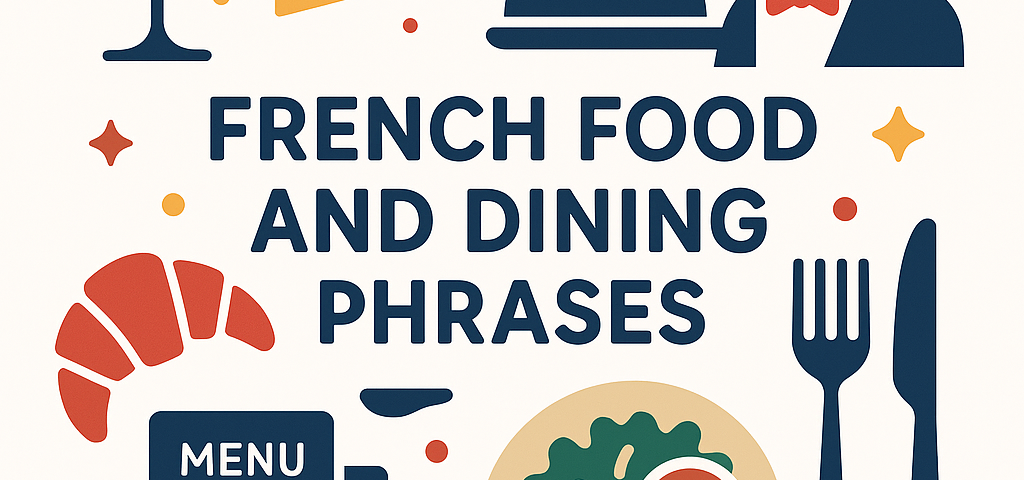
Optimizing French Travel Vocabulary: A Guide for Young Learners
June 12, 2025
Business French vocabulary for professionals
June 12, 2025The art of French dining encompasses a rich vocabulary that goes beyond simple meal orders, reflecting cultural nuances, etiquette, and an appreciation for culinary details. Mastering advanced French food and dining phrases is crucial for students, teachers, and parents who wish to enhance their interactions in authentic French environments. This deep-dive supports LearnFrenchTutor’s mission as a Quick French Tutor for French Students, helping you navigate the exquisite world of French gastronomy with confidence.
Understanding French Culinary Etiquette
French dining is about more than just food; it’s about experience and respect for the meal. Mastering the etiquette of asking for food or making menu choices in French is essential for anyone looking to dine like a local.
- Polite phrases such as “s’il vous plaît” (please) and “merci” (thank you) are essential.
- The importance of ordering in full sentences to show respect to the server.
- Understanding how to request modifications politely, as in “Puis-je avoir… sans…?” (May I have… without…?)
The Art of Describing Food
To fully appreciate French cuisine, one must learn how to describe flavors, textures, and presentation. Grasping how to express these culinary nuances can significantly enhance the dining experience.
- Key phrases include “C’est délicieux” (It’s delicious) and “Excusez-moi, mais je pense que ce plat est trop salé” (Excuse me, but I think this dish is too salty).
- Understanding food descriptors such as “sucré” (sweet), “salé” (salty), and “piquant” (spicy).
- Using adjectives effectively can elevate your speech and impress others.
Decoding Restaurant Menus
The intricate vocabulary found in French restaurant menus presents an opportunity for students to practice reading and comprehension. Familiarity with menu terminology can ease the dining process.
- Common menu items like “entrée” (starter), “plat principal” (main dish), and “dessert” (dessert) are a must-know.
- Understanding phrases like “au choix” (of your choice) or “à la carte” (individually priced dishes).
- Learning to navigate regional specialties can broaden culinary horizons.
Cultural Contexts: Celebrating French Festivals with Food
Food plays an integral role during French festivals and celebrations. Familiarizing yourself with festive dining phrases is ideal for those looking to join in on the fun.
- Expressions tailored for specific occasions, such as “Bon appétit!” (Enjoy your meal!) during a family gathering.
- Understanding the significance of dishes served during events like Christmas or Bastille Day.
- La Fête de la Gastronomie encourages the exploration of local foods and culinary traditions.
Building a Culinary Vocabulary for Future Success
Mastering French food and dining phrases is a crucial investment for anyone with aspirations in gastronomy, travel, or cultural exchange. A robust vocabulary enhances both social interactions and formal settings.
- Advanced knowledge of dining phrases can enrich travel experiences in French-speaking countries.
- Improving language skills can open doors to careers in hospitality and tourism.
- Engaging with the culture fosters appreciation and understanding of French gastronomy.
In conclusion, understanding and mastering advanced French food and dining phrases can significantly enrich your culinary experiences and cultural interactions. With these insights, we encourage you to explore LearnFrenchTutor (LFT)—your Quick French Tutor for French Students—to continue enhancing your French language skills and culinary vocabulary.

